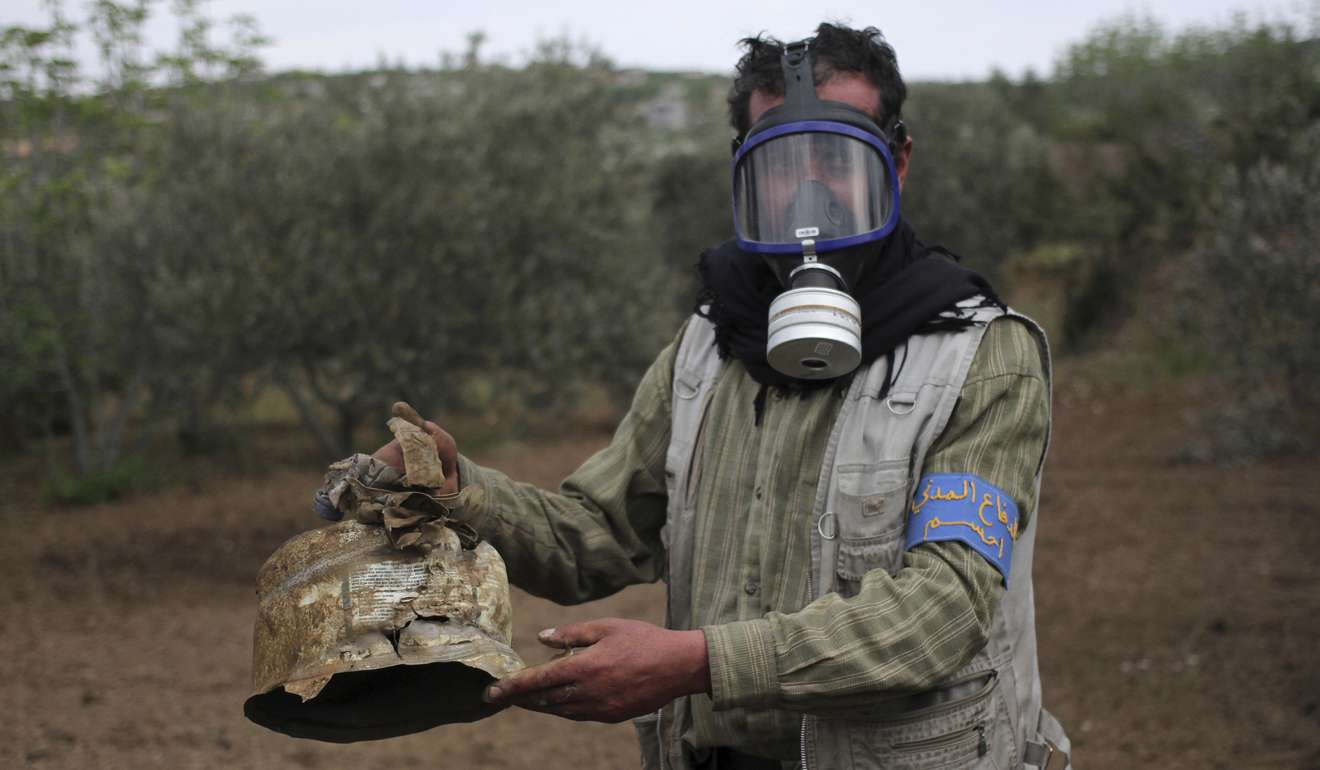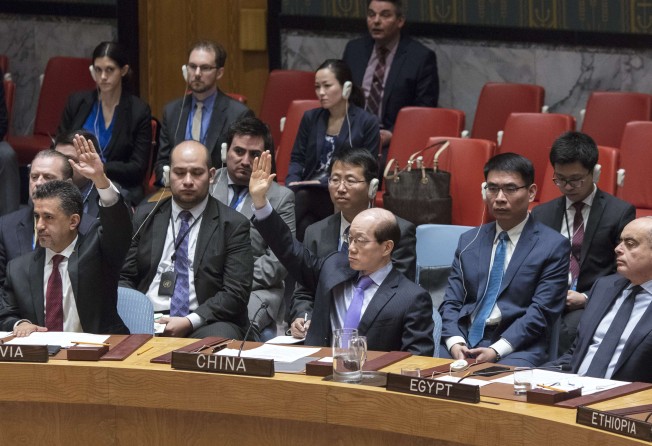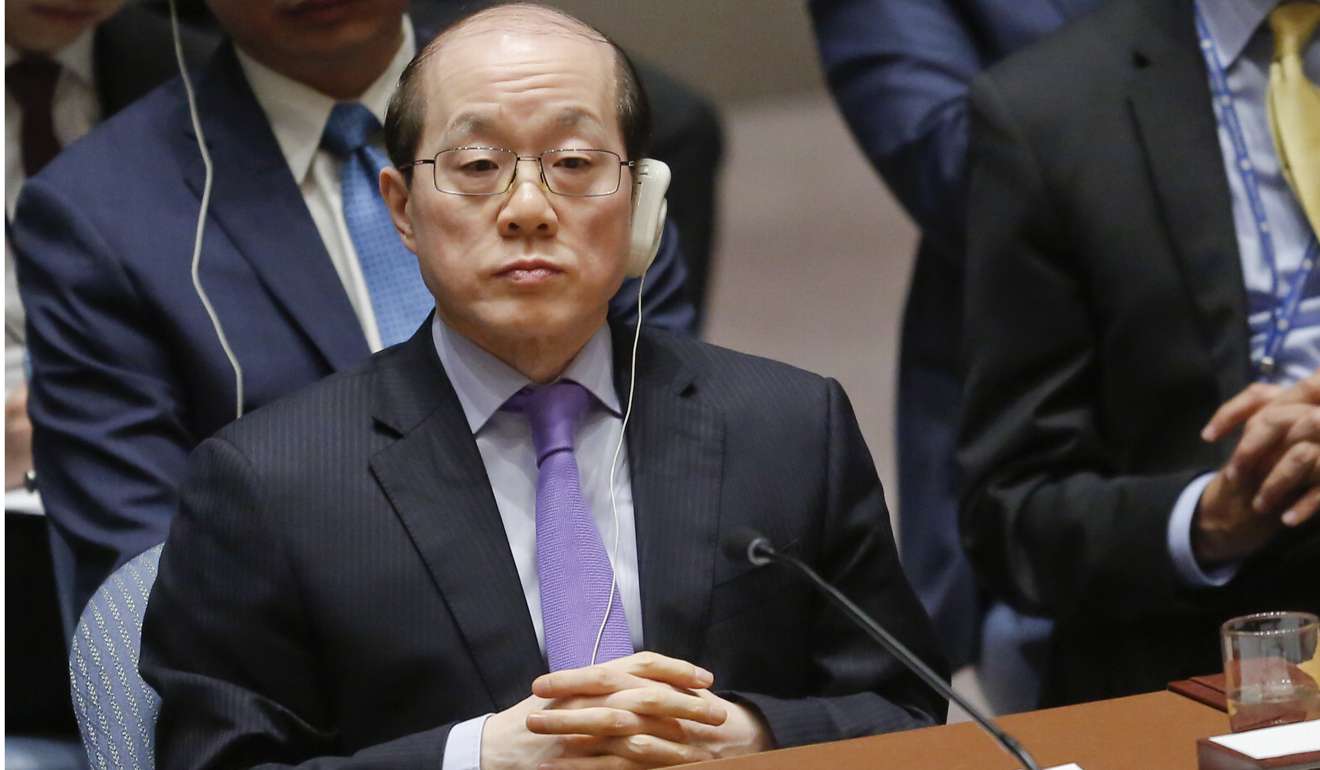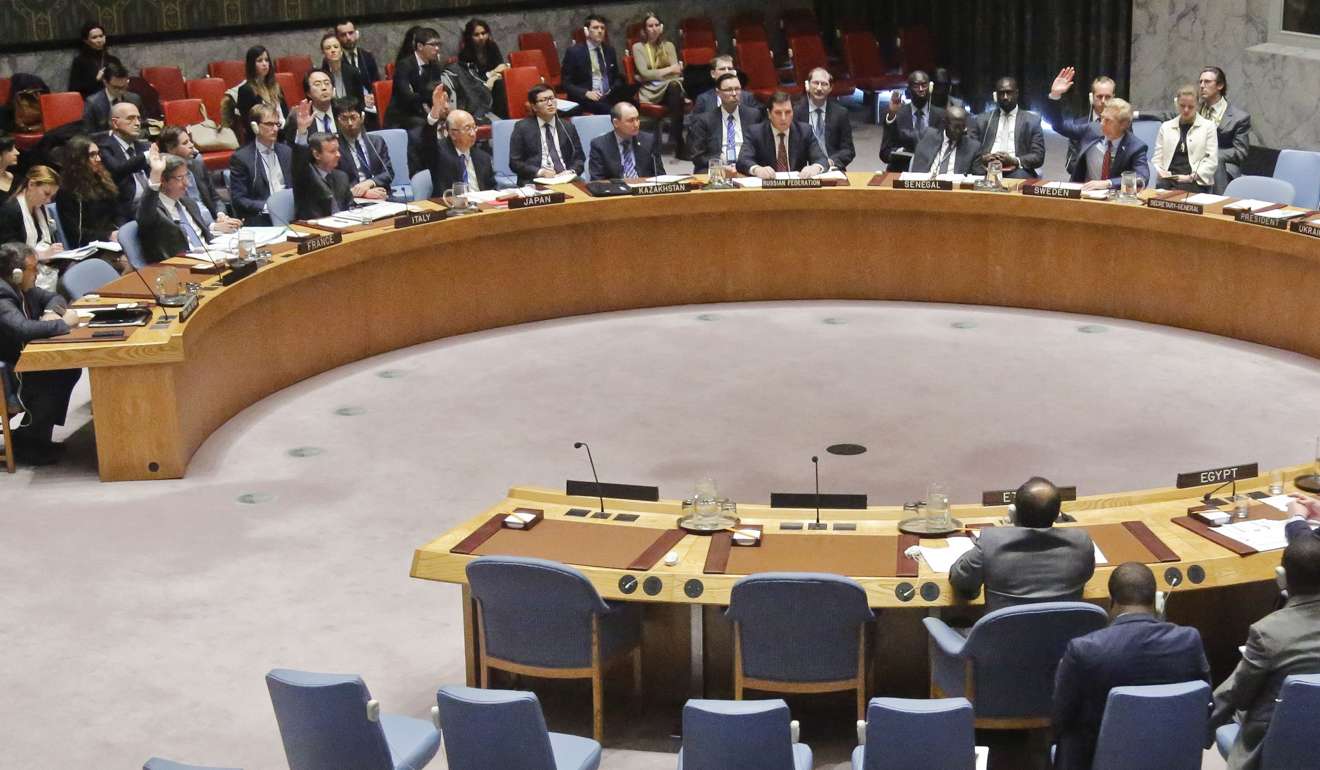
China and Russia veto new UN sanctions on Syria over chemical weapons, earning US rebuke

China and Russia have vetoed new UN sanctions against Syria, and the US ambassador accused both countries of refusing to hold President Bashar Assad’s regime accountable for the use of chemical weapons.
“They put their friends in the Assad regime ahead of our global security,” new American envoy Nikki Haley told the UN Security Council after the vote on Tuesday. “They turned away from defenceless men, women and children who died gasping for breath when Assad’s forces dropped their poisonous gas.”
The Trump administration recently joined France and Britain in sponsoring the resolution, and Haley minced no words in denouncing the “outrageous and indefensible choice” that Russia and China made on Tuesday. US President Donald Trump had warm words for Russian President Vladimir Putin while campaigning but Haley has criticised Russia over its annexation of Ukraine’s Crimea peninsula as well as Syria.

“At present, investigations are still ongoing and therefore it is too early to reach a final conclusion,” Liu told the council.
He added: “We oppose the use of chemical weapons by any state, any organization and any individual under any circumstance.”
The defeated resolution was drafted following a joint investigation by the United Nations and the international chemical weapons watchdog that determined the Syrian government was behind at least three attacks involving chlorine gas and the Islamic State extremist group was responsible for at least one involving mustard gas.

But Russia’s deputy UN ambassador Vladimir Safronkov said after the vote that Moscow let it be known early on that it was “sceptical” of the JIM’s reports and the “uncorroborated nature of the conclusions.” He stressed that there was “no convincing evidence” to determine who was responsible for using chemical weapons.

Addressing the three Western sponsors, Safronkov said: “You decided on provocation when you knew well in advance our position.” He stressed that the only way to resolve the Syrian conflict, now in its sixth year, is through cooperation — “and it’s high time we do so.”
Earlier Tuesday, Putin said Russia will oppose any new sanctions against Syria “because it wouldn’t help the negotiation process but only hamper it and undermine confidence as the process of negotiations is under way.”
Haley, the US ambassador, said Russia and China sat through nearly a year of briefings by the JIM investigators and never objected “but now, they suddenly say the investigation just wasn’t enough.”
“Russia’s suggestion is for the Assad regime to investigate itself for use of chemical weapons,” she said. “There is nothing wrong with the investigation. Russia just doesn’t want to criticize the Assad regime for using chemical weapons. That’s the truth.”
Referring to “my friends in Russia,” Haley added, “it is a sad day in the Security Council when members start making excuses for other member states killing their own people.”
“The world is definitely a more dangerous place,” she said. “Today, the international community can look no further than the Security Council for contributing to that.”
A chemical weapon attack on a Damascus suburb that killed hundreds of civilians on August 21, 2013, led to a US-Russian agreement and a Security Council resolution the following month that ordered the destruction of Syria’s chemical weapons, precursors and the equipment to produce the deadly agents. Council members also pledged to take further measures if chemical weapons were used.
While insisting it did not stage the attack, the Syrian government supported the resolution and joined the chemical weapons watchdog known as the Organisation for the Prohibition of Chemical Weapons, warding off possible US military strikes.
Syria’s declared stockpile of 1,300 tonnes of chemicals has been destroyed, but the OPCW is still investigating outstanding questions about possible undeclared chemical weapons.
Syria’s deputy UN ambassador Mounzer Mounzer told the council his government opposes any use of weapons of mass destruction and said the JIM report is based on “fabricated eyewitness accounts drawn from terrorist groups” supported by the U.S., France and Britain.
Additional reporting by Agence France-Presse and Xinhua